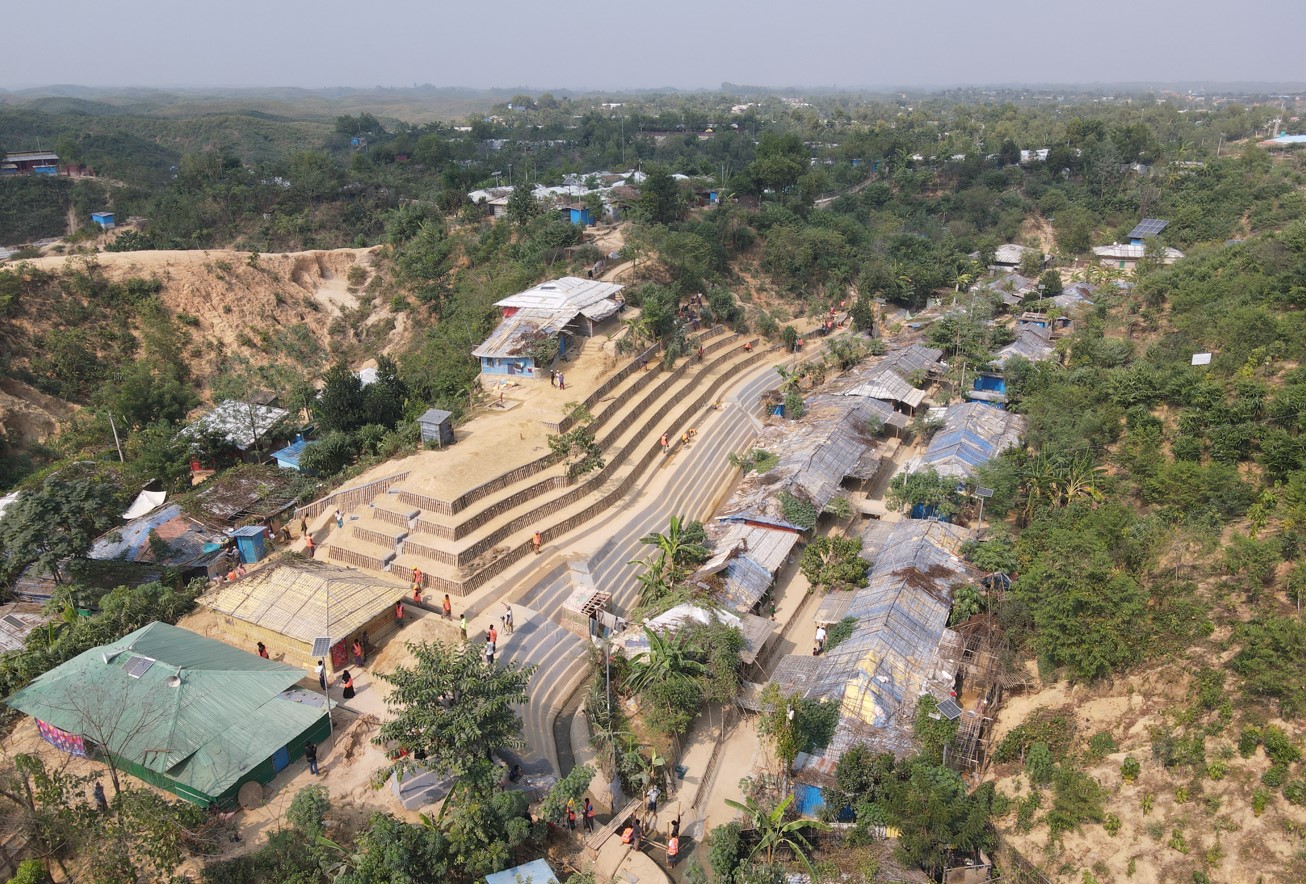Key Highlights of Climate Change and DRR
- 1,715 BHHs and 15 UDMC received orientation on climate resilience and DRR under different projects
- 28,972 BHHs covered under “Awareness building of BHHs on DRR and Climate change issue through distribution of DRR flyer” program
- 3,607 BBHs received Multi-purpose cash grant support under emergency response support for flood and fire incident affected people
- 3,510 BBHs received Food items under emergency response support for flood and fire incident affected people
- 3,950 BBHs received Non-food items under emergency response support for flood and fire incident affected people
- 2,350 BBHs received hygiene kits (standard hygiene package) under emergency response support for flood affected people
- 350 life-jackets and 40 life-buoys were distributed for the use of school-going children and UDMC members
- Maintenance of WASH facilities of 35 schools affected by flooding
- A total of 5 cyclone shelters were rehabilitated in the Ukhiya and Teknaf upazilas of the Cox’s Bazar district
- A 2,361-meter pathway was constructed for safer navigability of Rohingya communities living in Camps 17,18, 20 and 20 extension
- To ensure a smooth drainage system, an 875-meter drain was constructed in Camps 17 and 18
- To ensure protection from landslide/erosion, a 318-meter slope protection wall was constructed in Camp 20 and 20 extension
- 225-meter brick retaining wall had been constructed in Camp-24
Projects that primarily focusing on DRR, CCA and mitigation, viz. G4CR-II, GCA are CCA project. Besides, NRM project like “Improved Natural Environment, Augmented Self-reliance and Peaceful Co-existence for Refugees and Host Communities” project also address EbA. Disaster Risk Reduction through Food Assistance for Assets (DRR-FFA) projects implementing disaster risk reduction related activities.
Climate Change (CC) adaptation and mitigation activities are often not an isolated/new activity, but, are rather embedded in regular development activities with specific actions to address CC issues. In the reporting period, CNRS started the implementation of GCF funded Gender-responsive Costal Adaptation (GCA) in the Koyra and Shamnagr upazilas of the Khulna and Satkhira districts. The key objective of the project is to support the Government of Bangladesh (GoB) in strengthening the adaptive capacities of coastal communities, especially women, to cope with the impact of climate change-induced salinity on their livelihoods and water security. From March 2021, CNRS has started work on Climate Risk Insurance with the support of Oxfam.
In the reporting period, DRR focused activities were implemented under different projects. The CNRS-TROSA project reintroduced an indigenous method for enhancing the communities’ capacities in erosion management that had been widely used by local communities for decades. A total of 44 new Bamboo Bundles were installed at two different places (Teesta river in the Kaunia upazila of the Rangpur district and in Jinjiram river under the Rowmari upazila of the Kurigram district. The installed Bamboo Bundles successfully protected the riverbank from erosion and the respective local administrations and the local government body is helping the communities to replicate it elsewhere and more than 2 kilometers of the area is protected by their support.

WFP supported DRR and the SMEP projects implemented some DRR focused activities in Rohingya camps and host community areas which include canal re-excavation, HBB road construction, slope protection and stabilization, renovation of the police station, speed bumper construction, retaining wall construction, rehabilitation of cyclone shelters, etc.
Under different projects, emergency response support was provided for the flood affected people of northeastern Bangladesh. Emergency response support was also provided for the fire incident affected people in the Rohingya camps and the host community areas. The types of support include multipurpose cash grants, hygiene promotion and educational material support, clothing, pillow, bed sheets, tube-well maintenance, distribution of life jackets and life-buoys, etc.
“Shocks are better absorbed by mainstreaming resilience into program activities” – considering this, different events, E.g. capacity building training on DRR and Climate Resilience for UDMC to develop resilience plan/other preparations, training for frontline staff on DRR and climate resilience, orientation of BHHs on DRR and climate resilience through Pushtidol/group meetings were organized under different projects.




